Water is Life
22 May 2024 British Prime Minister Rishi Sunak announces a general election
21 May 2024 The UK’s Environment Agency announces that raw sewage ‘spills’ had almost doubled in one year, reaching 3.6 million hours of spillage
May 2023 It’s reported that only 14% of English rivers have ‘good’ ecological condition
Is it an unavoidable fact that humans always muck everything up? And is it also true that a lot of humans actually don't mind. Or if they do, feel incapable of doing anything about it?
In Britain, Mrs Thatcher's idea of selling off public assets, then using the money to pay unemployment benefits to three million people, have now really reached the fruition point. The railways are hopeless, the roads full of potholes, and electricity and gas cost a fortune, and there is no money to fix anything. But the real triumph of her ill-conceived ideological assault is water.
I remember Margaret Thatcher vividly. The first general election I voted in, 1979, was her shock victory. By the fateful day of triumph, we were growing accustomed to the sound of her voice: soon to take on a crowing note that would remain with her. It was the year I left school and seemed appropriate that, having left behind the nerve-jangling screech of chalk on blackboard, I should have something to replace it with - something even more irritating. I've never understood the respect the Iron Lady has garnered from abroad, but of course her stand against communism and authoritarianism gave things a different slant when seen from afar. At home, for those of us who had to live with her, she was like a monstrous schoolmistress whose lessons you dreaded.
The central thrust of Thatcherism was that small government was good and that the market, the remorseless competitive battle of profit-driven capitalism, would somehow drive down prices while raising quality. It came on the back of widely-perceived incompetence and inefficiency in state-owned utilities, but also benefited from the poor image of opposition leader, Michael Foot, a rather bumbling and eccentric figure usually dressed in a duffel coat. During that ‘79 election campaign, I went to hear him speak at Nottingham City Hall. He mounted the stage uncertainly, wavering hand clutching for the rail. At the lectern he paused, beaming smiles at everyone, the sort that old people do when they know there’s a joke, but they didn’t hear it. Then he straightened, and without referring to any notes, delivered a blistering speech, remorseless and powerful in its logic, persuasive and passionate. He lost the election.
Thatcher privatised everything she could. When public assets came up for sale, ordinary people responded to cheesy television adverts and bought shares. As a result share prices soared and those mini-investors sold out. In time the shares became concentrated in fewer and fewer hands, mostly pension and hedge funds. They wanted profits for their investors; they certainly did not want to spend millions fixing leaks and updating Victorian infrastructure. As time went on it has become clear that privatisation has neither driven down prices or raised quality.
A few people began to object. Surfers Against Sewage were one voice and they have campaigned for years. For a long time nobody in government took the slightest notice. Raw sewage spills became a regular occurrence.
Over on the River Wye, one of Britain's riverine crown jewels, people began to notice algal growths and declines in once-thriving populations of native species. The Wye flows through largely rural areas, starting in the Welsh mountains. The lack of towns on its banks meant that it had escaped all the horrors of the industrial age and there was very little sewage, at least not of the human kind.
When I was nine, I camped on its banks and asked my Dad if I could swim across. He said yes, but didn't offer to come with me. I remember the soft touch of waving fronds of water crowsfoot as I went. That's a plant that is a dead giveaway: the water is clean. Above it danced the deep blue wings of banded demoiselles, a type of dragonfly whose flight is like watching tiny chips of dark starry night fall through sunshine. Below me were shifting shadows, maybe salmon or trout, they were common. I swam across and I swam back. When it was over, I felt like I'd started something.
In the year 2000 I swam across the Ganges at Varanasi. Despite it being a holy river, the Indian population are happy to chuck all their crap into it. Fortunately in those days plastic was not as common as now. I saw some bodies, but also a river dolphin, the susu. It rolled up in front of me and gave me such a fright that I almost gulped some of the water - that would have been a mistake, but probably not a fatal one.
By 2017 when I travelled downriver to Calcutta I can safely say that I never considered getting in the river. Huge rafts of mixed plastic and hyacinths, cemented together with oils and fat, were drifting along. At Calcutta people do wash in it, but there is no alternative for them. Water quality does not appear to be high on the list of Indian governmental objectives. It’s curious that although all the major world religions profess to revere clean water, they have done even less than Mrs Thatcher’s privatised companies to do anything about it.
In 2023, above Iquitos in the Peruvian Amazon, I swam across that giant, ignoring the nagging fears of caimans, sting rays, orifice fish, electric eels and piranhas. There was no visible pollution, but a few miles downstream in the Iquitos shanty suburb of Belem, I saw vast amounts of plastic and human waste discarded under the stilt houses. When the rains came (as they eventually did) all these tons of rubbish would be flushed downstream. The irony is that they would then pass through the most isolated and undamaged portion of the entire Amazon ecosystem, the 1,000 kilometres of jungle between Iquitos and Leticia in Colombia.
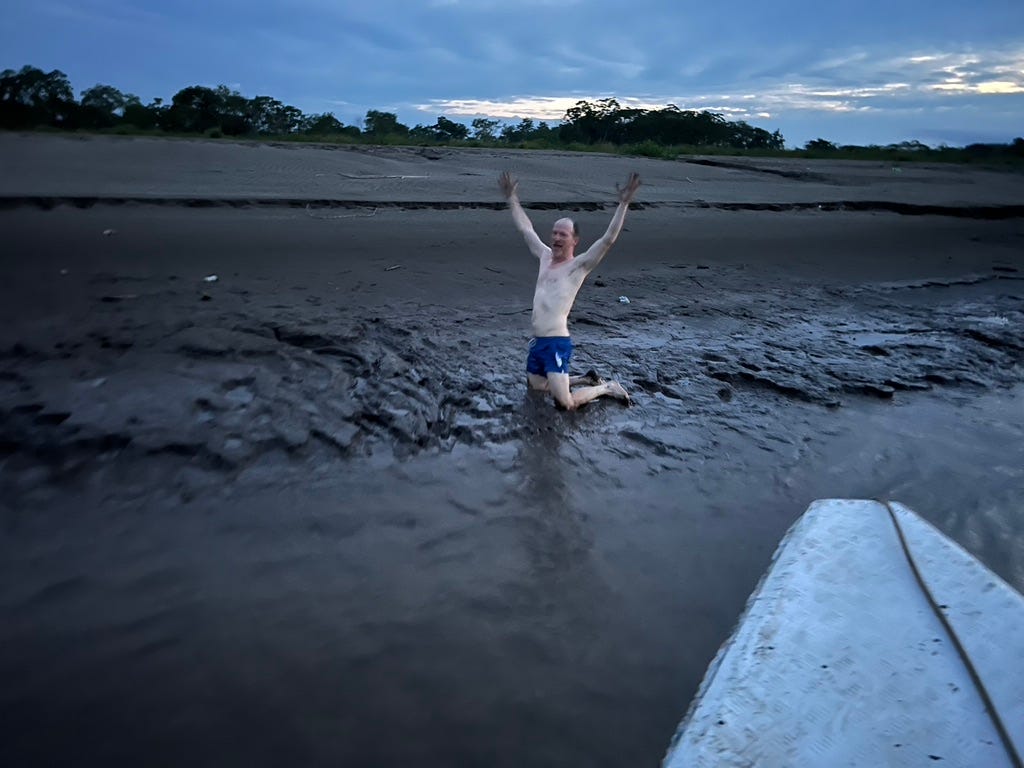
Clean water was taken for granted by humanity for most of our existence. Imagine: once upon a time, any hominid could confidently stroll up to any river or lake and take a swig. I suppose you might have to watch out for a dead animal in the shallows, and the parasites, but otherwise it was fine. A lot of people around the world still rely on doing that.
Back on the River Wye, clean water activists have pointed out that the only possible source of the recent pollution was agricultural run-off. This set off howls of indignation from the farming unions, but the last few years have seen an unprecedented increase in the intensity of dairy and poultry farming in Britain, a trend that had already been underway for some time in the United States. Cows are kept indoors and milked robotically. All their food is trucked in. Chicken mega-farms have been built in their hundreds. Each can house at least 82,000 birds at any one time (that's the starting point to be classed as a mega-farm). Once again, all the feed is brought in.
Aside from animal welfare issues, the mega-problem is waste. Ammonia emissions in Wales jumped by 40% between 2017 and 2022 and it's been estimated that the River Wye catchment now contains about 32 million chickens.
I stopped eating chicken years ago. The sight of terrified scrawny white birds having their heads shoved down a mincer in the street did it for me: that was in Yemen, but I've seen the same treatment in many other countries. With eggs, I'm fortunate that I live in a rural area where people sell them outside their small-holdings. No mega-farmer ever does that.
And clean water? I hope it's a big issue in the upcoming British election. People talk about net-zero, but I'd like to propose a more ambitious target: that rivers should be clean enough that you could stroll up and take a swig, without giving out a shriek, like you just heard the sound of chalk scraping down a blackboard
.
Travelling again now for a couple of weeks so no posts… hoping to swim in some clear clean water. By the way, for those of you who do not live in the UK, there are some fantastic, very clean places to swim, without having to worry if you swallow the occasional gulp of water.


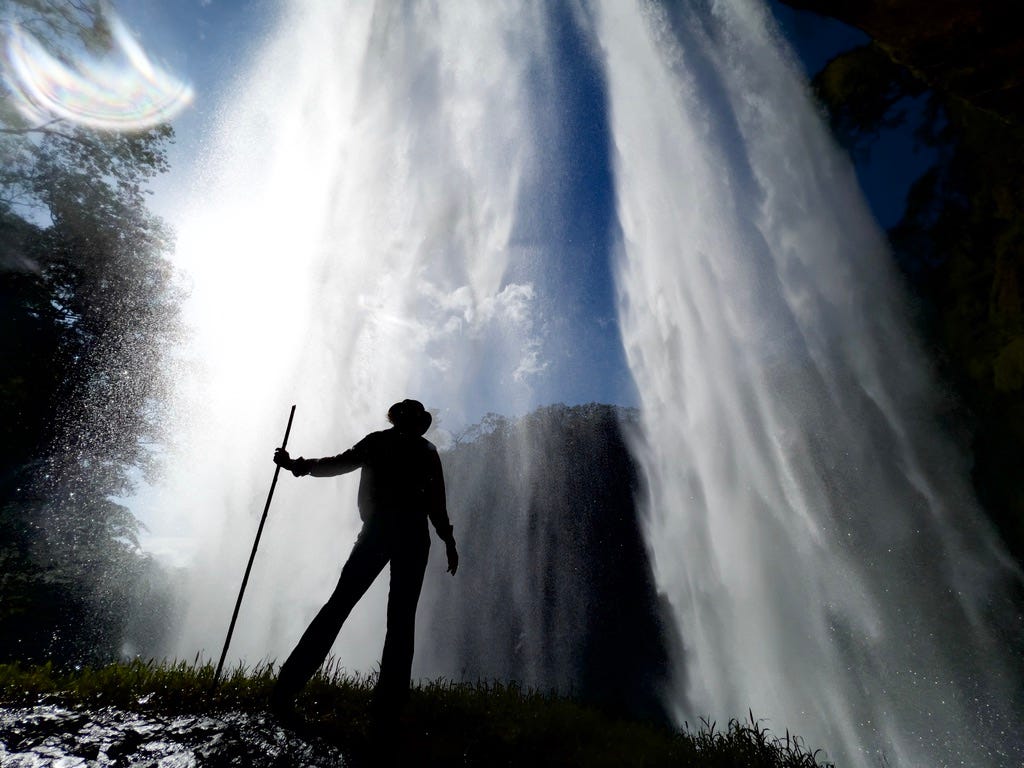
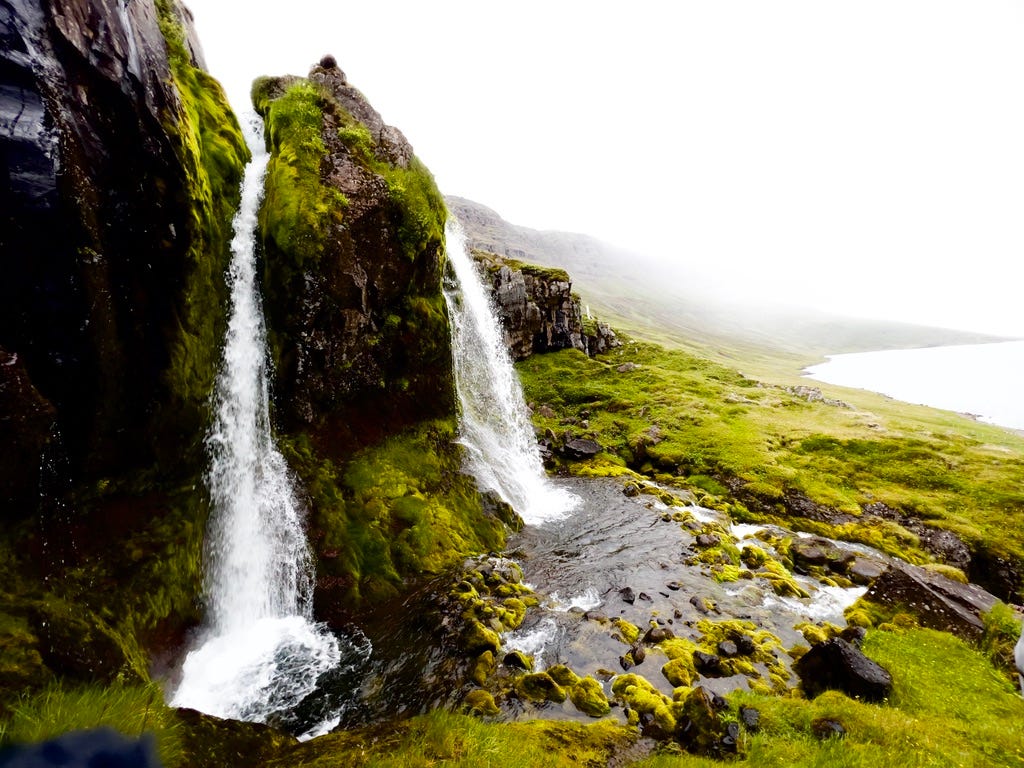
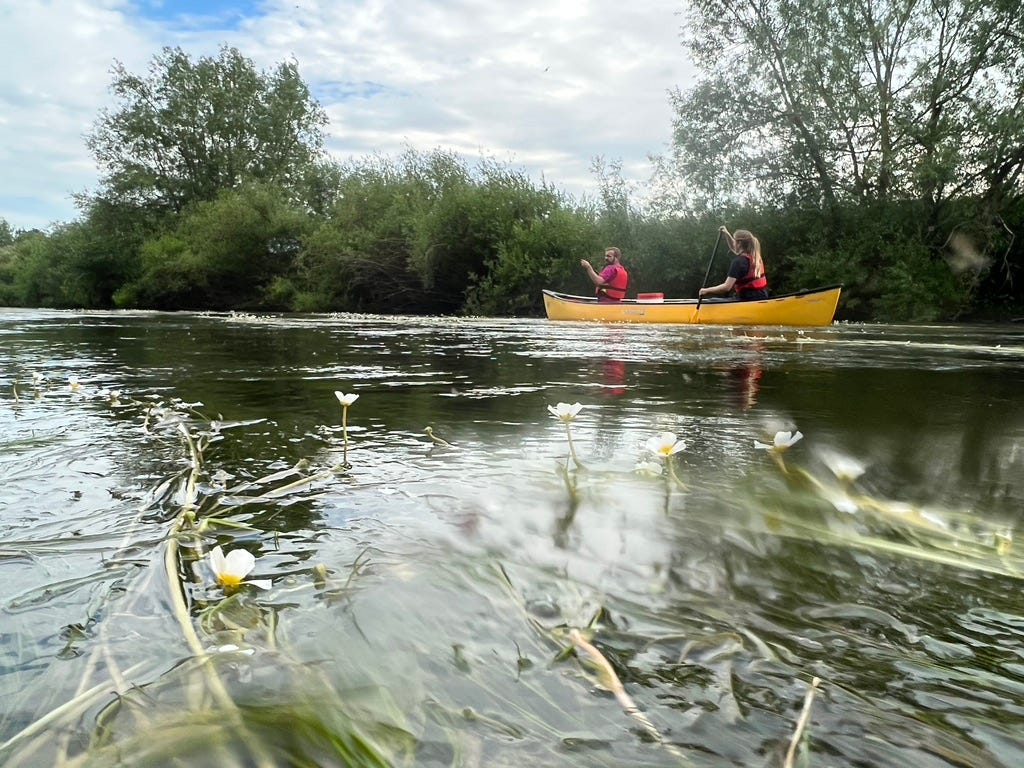
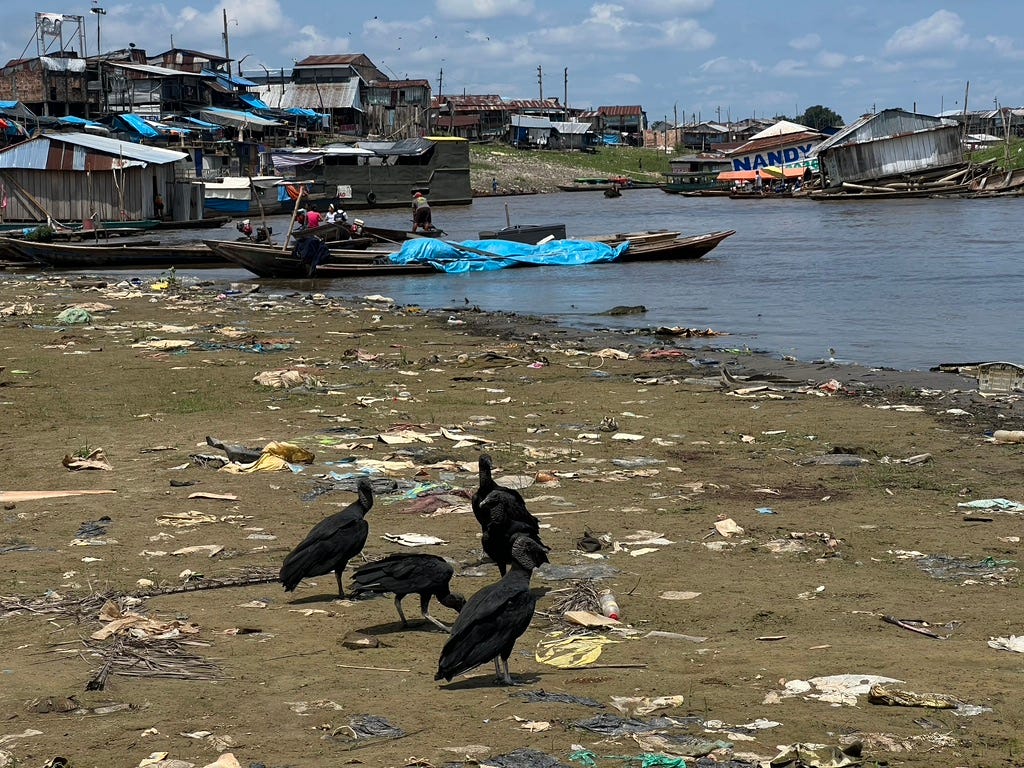
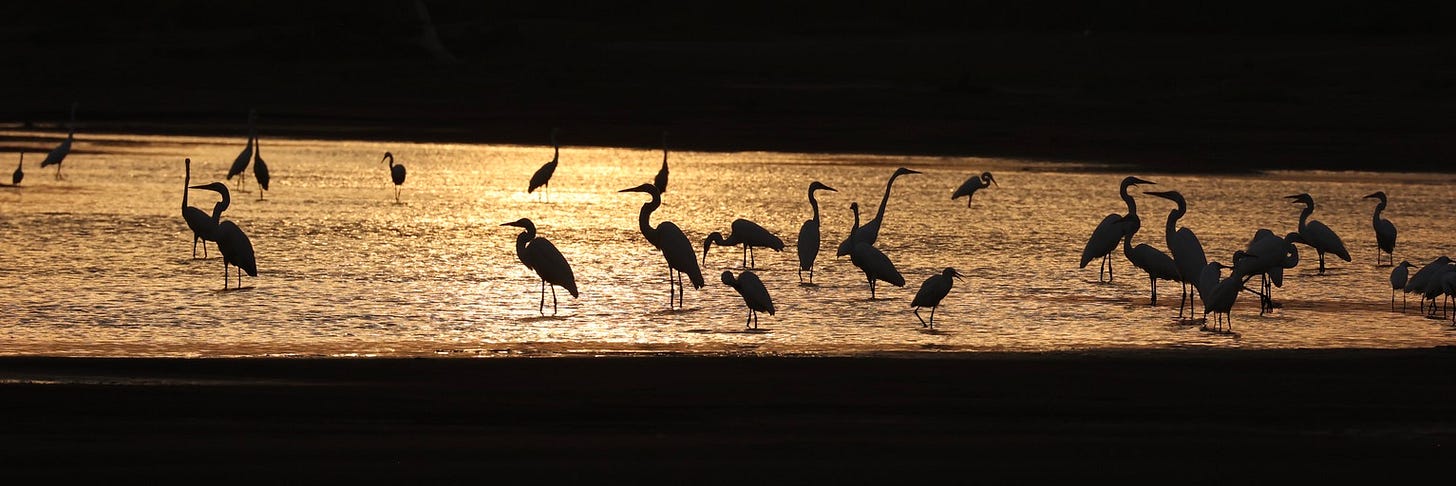

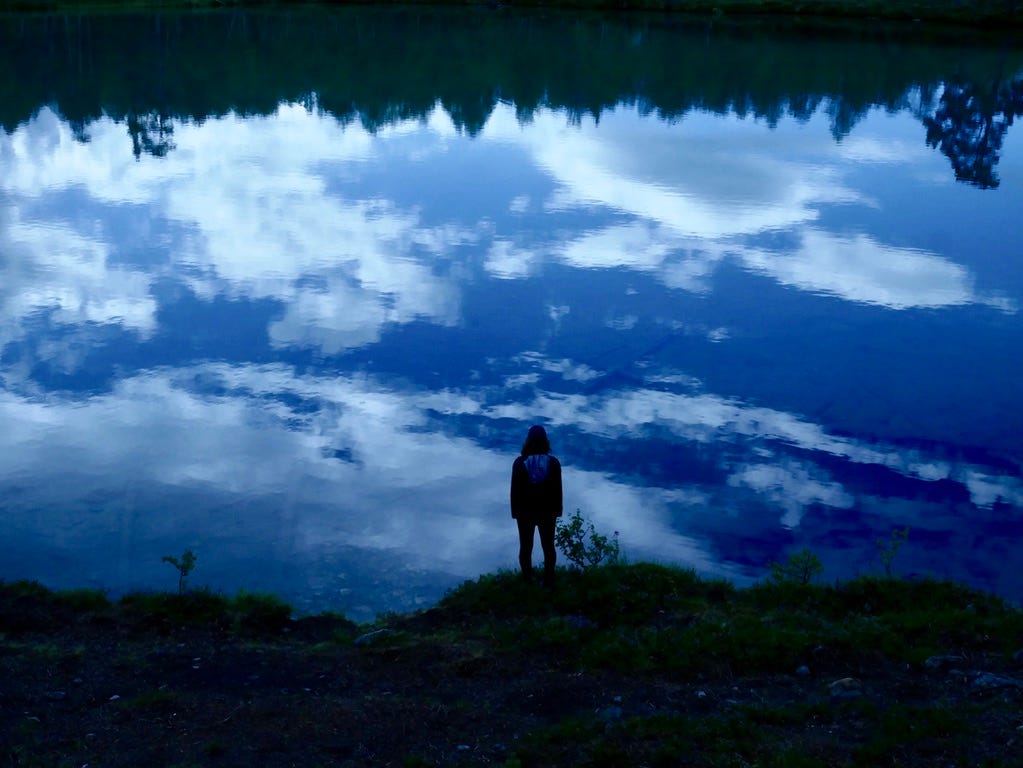
Thank you. There is some cold comfort to be had in the knowledge that our issues with water here in South Africa are also present in the first world. But it's intensely depressing. We're going to kill our species off, and all for the sake of profit.